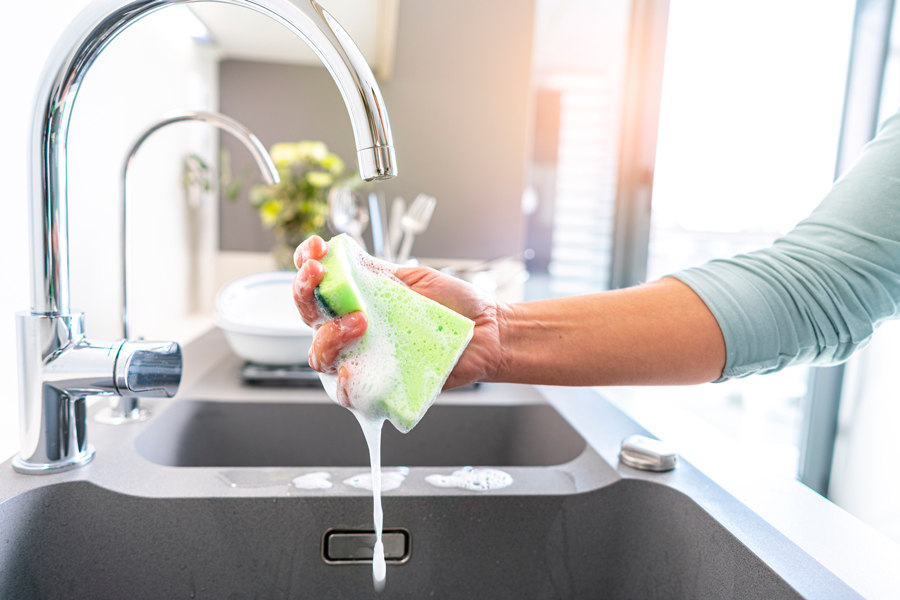- Before you start cooking, please wash your cookware with 1 cup of white vinegar, water, and dish soap before using.
- Daily cleaning your cookware with soap and water after use might be enough, but if your cookware discolors or has burnt particles in it, use a small bit of cleaner mixed with water to make a paste and rub it with a dry towel on the inside of your cookware in a circular motion and it will remove it.
- The small plastic scraper is very helpful in removing particles also. I didn’t think much of it when I first received my cookware, but I can’t live without it now.
- Scotch Brite Steel Pads make clean-up a breeze. (Only use them on the inside of your cookware, as the outside has a polished finish.)
- Use metal on metal (a metal spatula works best) when cooking. Never use plastic or silicone; don’t be afraid to scrape the bottom of the pan. It will not damage or hurt the cookware’s performance. Inside scratches are normal and shows that you are cooking!
- Side Handles and plastic lid handles are not recommended for the oven or dishwasher.
- If you burn something and can’t get it off, there is a way! Spray with oven cleaner and allow to sit outside for a few hours. I have never had to do this yet, but at least I know there is help.
- Electric skillets and rice cookers are submersible in water but not when hot. Let them cool completely, as they have an oil core inside, which can cause damage.

